Burkina Faso : Bt cowpea to be popularized soon after more than a decade of experimentation
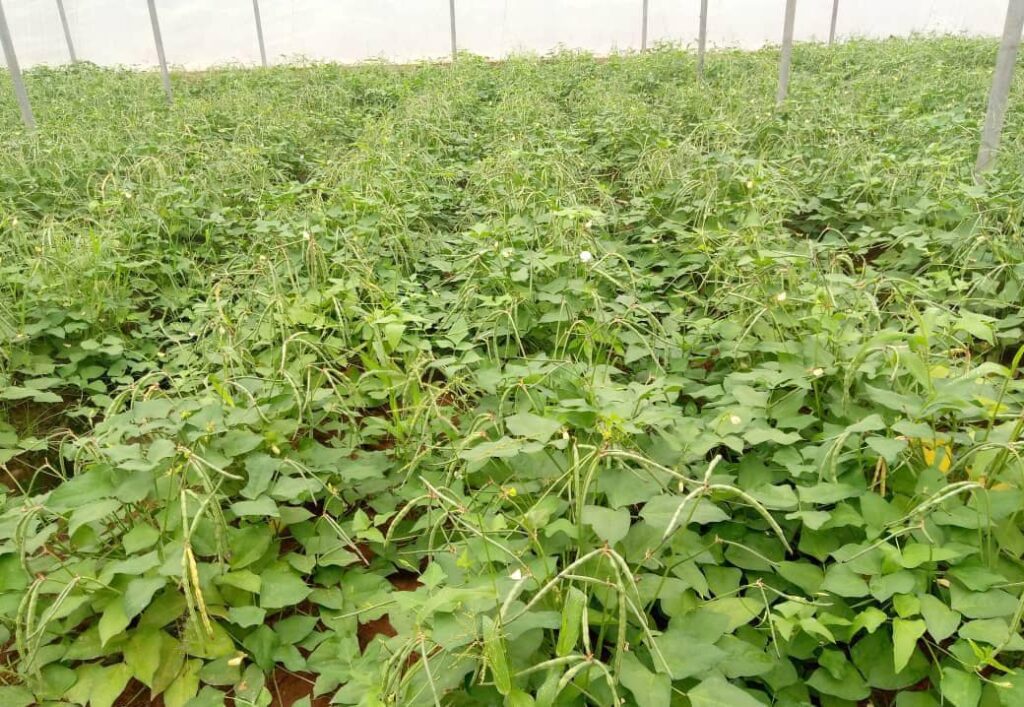
BT cowpea under experimentation in a greenhouse at INERA/Photo: INERA
In Burkina Faso, cowpea, also known as bean or « Benga », is a legume of great importance to local agriculture, playing a crucial role in food security and producers’ incomes. However, for years, this crop has been facing a formidable threat: Maruca vitrata, a destructive caterpillar that attacks cowpea flowers, leaves and pods, causing losses of up to 80% of harvests (INERA). Faced with this persistent threat, growers have found themselves in a quasi-permanent struggle, using pesticides that are often costly and ineffective in the long term. In response to this scourge, Burkina Faso’s Institut de l’Environnement et de Recherches Agricoles (INERA) launched an ambitious project in 2011 to develop a genetically modified cowpea variety, cowpea Bacillus thuringiensis (Bt). Designed to resist Maruca vitrata, Bt cowpea is the fruit of years of research, aimed at protecting crops without resorting to harmful and expensive pesticides. After more than ten years of experimentation, this project is reaching its final phase, which could pave the way for mass distribution of this resistant variety as early as 2025, according to project managers.
In the field with growers faced with Maruca vitrata
In Nambé, a village some 25 km from Ouagadougou in the rural commune of Koubri, farmers are experiencing the devastating consequences of Maruca vitrata on a daily basis. André Nikiéma, a 60-year-old farmer, works a one-hectare field to feed his family. He recounts this major dificulty, which has become more or less traditional. « When my cowpea starts to flower, the caterpillars attack immediately. I have to use pesticides, but these products, often intended for other crops such as cotton, are expensive and sometimes ineffective », he explains. Faced with these torments inflicted by the destructive caterpillar, Mr. Nikiéma expresses his hope that improved seeds will arrive on the market. « If more effective seeds are available, I’m ready to adopt them. They would be more profitable and above all easier to manage, » he says.
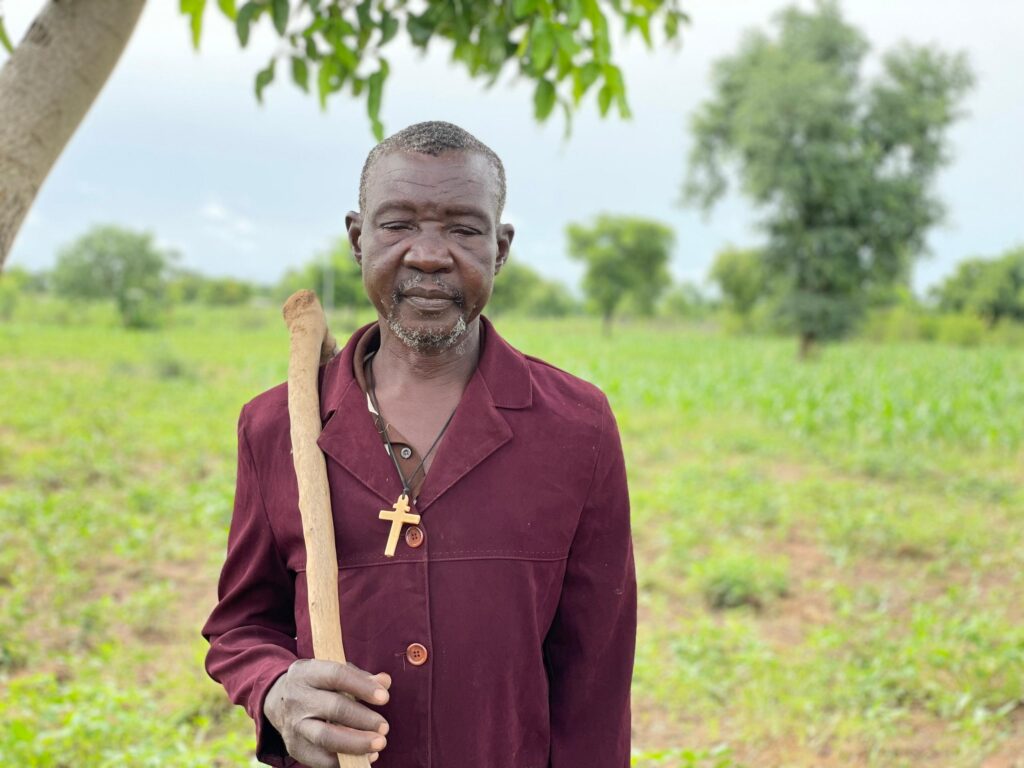

A little further on, a few steps away from André Nikiéma’s field, Bernadette Tondé, mother of three and cowpea grower for the past five years, is in the middle of a hard day’s work, her face sweating. « Every year, I lose a large part of my harvest to pests. I can lose up to 60 kg of cowpeas, » she says. For her, the arrival of a resistant variety is a huge relief. « If Bt cowpea can help me save my harvest, I won’t hesitate for a second, » says Bernadette Tondé.
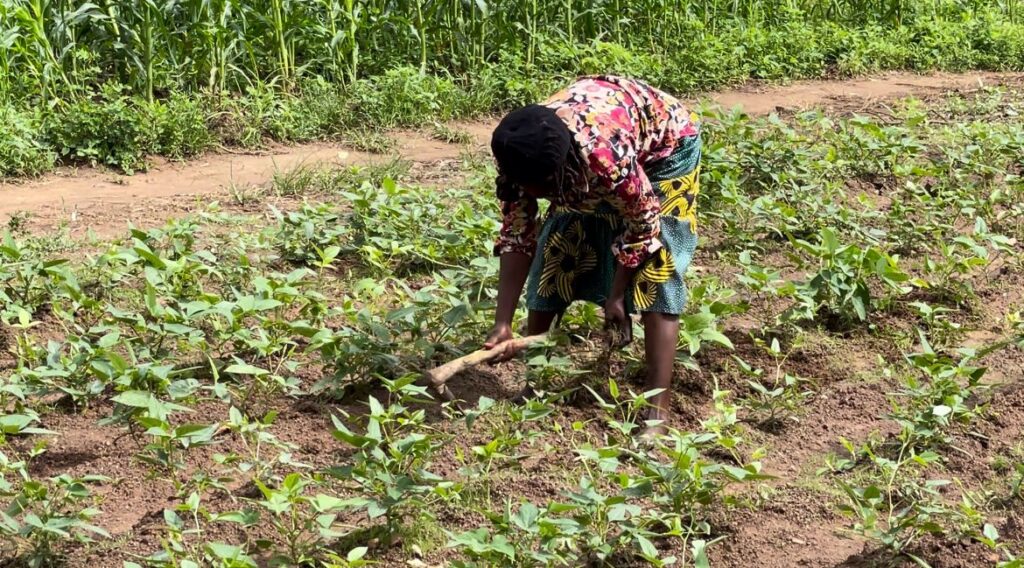

The same observation was made by Jean Tapsoba, a farmer living in the Gounghin district of Koubri. This year, the growth of his seedlings was delayed, not only because of Maruca vitrata, but also because of irregular rainfall. « My seeds took a long time to germinate
because of the delayed rains, » he explains, looking worriedly at his cowpea plants already infested with aphids. « You see, if I don’t spray pesticides, the plants don’t grow. That’s my main problem. I’ve already sprayed once, but I’ll have to do it again, otherwise the caterpillars risk destroying my crop, » he says thoughtfully. Like his neighbors, Jean is in favor of adopting Bt cowpea: « If it can protect my crops from these pests, I’m willing to give it a try. »
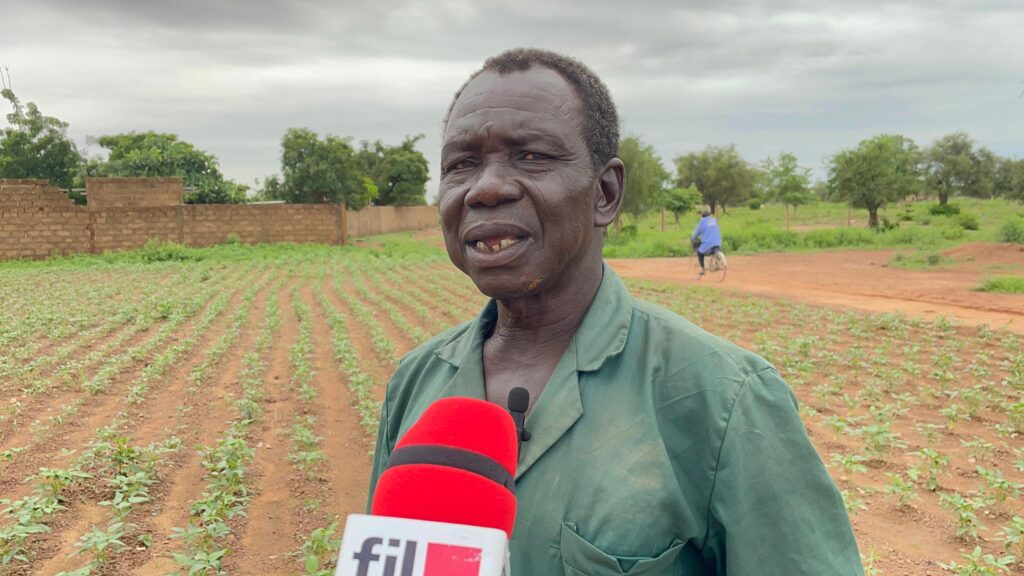

The same can be heard in Mogtedo, a village 5 km from the center of Koubri. Blaise Zoundi, a retired teacher, faces the same realities. Sitting in front of his yard, he watches over his recently weeded field. Because of the losses caused by the caterpillar, Blaise has planted a small quantity of cowpeas, for fear of seeing his harvest wiped out. However, he makes up for these losses with the yield from his other crops. « Cowpea cultivation has become very difficult because of the caterpillar and other insects. It’s also very expensive », he confides. Although he suffers the ravages of the pod borer, Blaise remains reluctant to use pesticides, which he often deems harmful to health. « If improved seeds could be made available at lower cost, I wouldn’t be against it. It’s true that there are prejudices about it, but you have to try it to make up your mind, » he admits, referring to the possibility of growing genetically modified cowpeas.
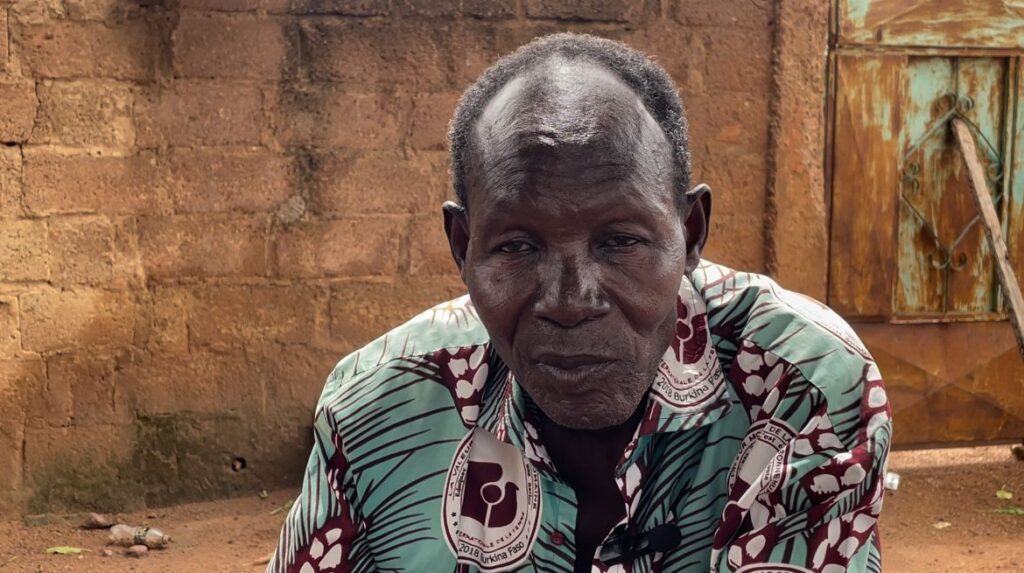

These testimonies from Burkinabe growers underline the urgent need for a lasting solution to these massive agricultural losses, and Bt cowpeas appear to be the long- awaited solution.
A promising biotechnological breakthrough
The Bt cowpea was developed using a genetic modification technique called transgenesis, which consists in introducing genes into the plant capable of producing natural insecticidal proteins, in this case Cry1Ab and Cry2Ab. These proteins enable the plant itself to produce an insecticide against Maruca vitrata, while remaining harmless to other insects, animals and humans. This innovation effectively protects the crop while reducing the use of pesticides, which are often toxic to health and the environment.
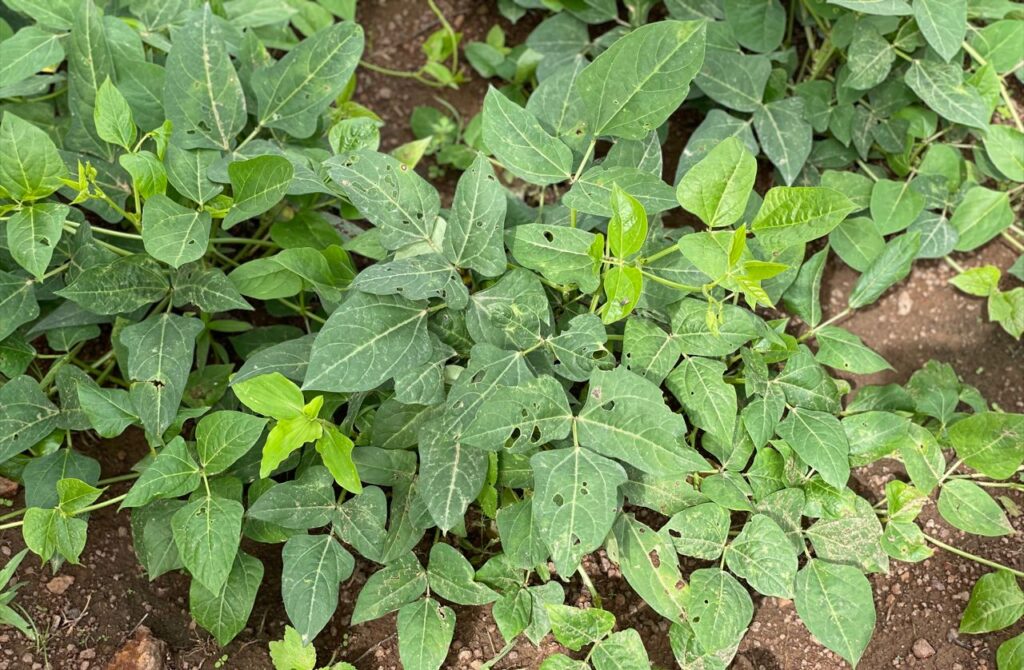

Hamadou Zongo, head of the scientific and technical department at the Kamboinsin agricultural environmental research and training center (CREAF/KBSE), is a member of the team responsible for leading the introduction of Bt cowpeas in Burkina Faso. According to him, two Bt cowpea varieties are currently being evaluated: IT98KT and IT99KT, with yields of between 1.5 and 2 tons per hectare, far higher than those obtained with traditional varieties.
Mr. Zongo explains that Bt cowpeas have the same agronomic characteristics as conventional cowpeas, but with the added advantage of greater resistance to pests. According to Mr. Zongo, this variety could improve yields by more than 20%, reducing losses and boosting the incomes of Burkinabe producers.
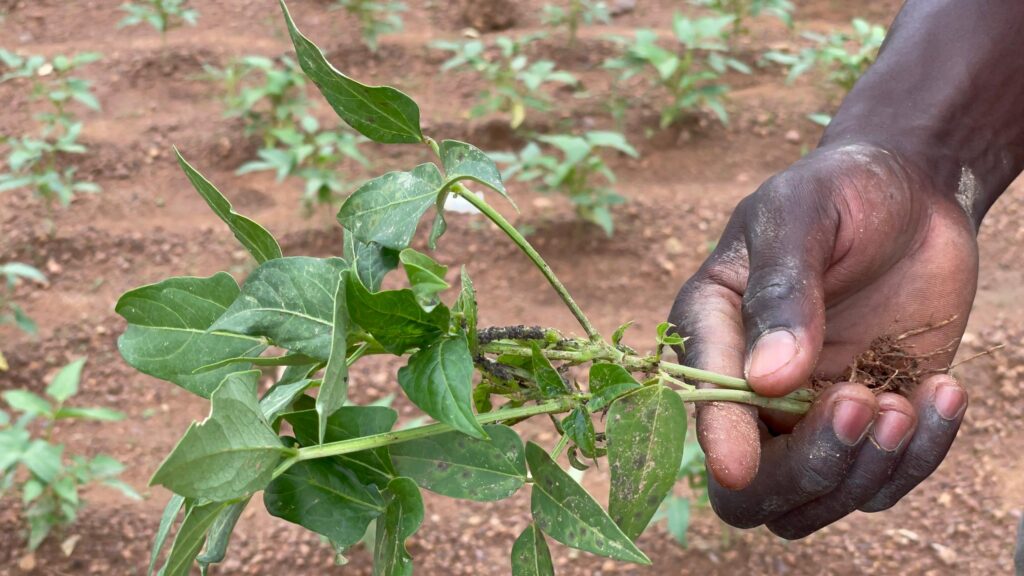

A solution to the challenge of food security in Burkina Faso
The popularization of Maruca-resistant cowpea not only represents a relief for cowpea growers; it could also play a key role in improving Burkina Faso’s food security. The country, like many others in West Africa, is facing increasing challenges to agricultural production, due to climatic hazards, pests and unsustainable farming practices. In this context, the introduction of a more resilient and productive crop is seen as a major step towards achieving food security objectives.
According to the project managers, if Bt cowpeas are popularized on a large scale, they could help stabilize farmers’ incomes while meeting growing food needs. The potential impact of this innovation goes beyond economic gains, as it also reduces the health risks associated with the intensive use of pesticides, for both farmers and consumers.
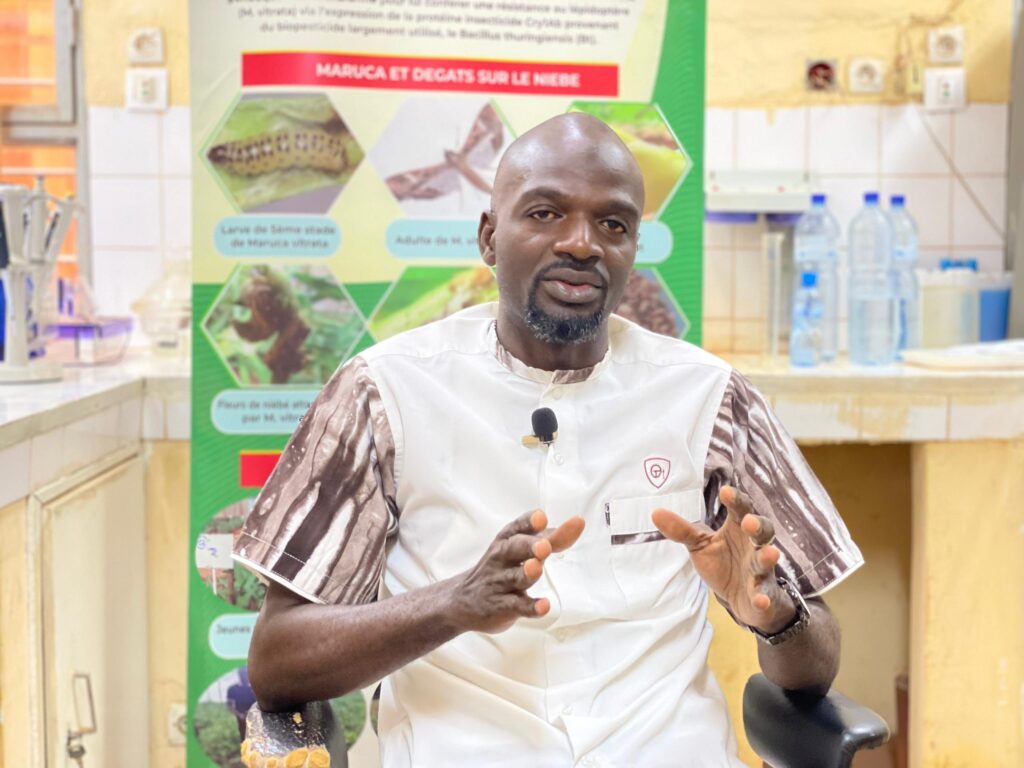

Regulatory process and outlook
The process of introducing pod-borer-resistant cowpeas follows a strict regulatory framework. Currently, a public consultation, orchestrated by the National Biosafety Agency (ANB), is underway to assess feedback from civil society on this new technology. This consultation is a key step before the registration of Bt cowpea varieties in the national seed catalog, the last formality before their distribution to growers.
During the thirteen years of experimentation, several studies were carried out to assess the impact of Bt cowpeas on human and animal health, and on the environment. The results of these studies were deemed reassuring by the researchers. Apart from Maruca vitrata, no other insects were affected by the Bt protein, and no adverse impact on human or animal health was observed.
Hamadou Zongo remains optimistic about the future of this agricultural innovation. « We’re very advanced. After public consultation, all that remains is to register the varieties in the national catalog. We hope that everything will be ready for distribution to growers by 2025, » he declares.
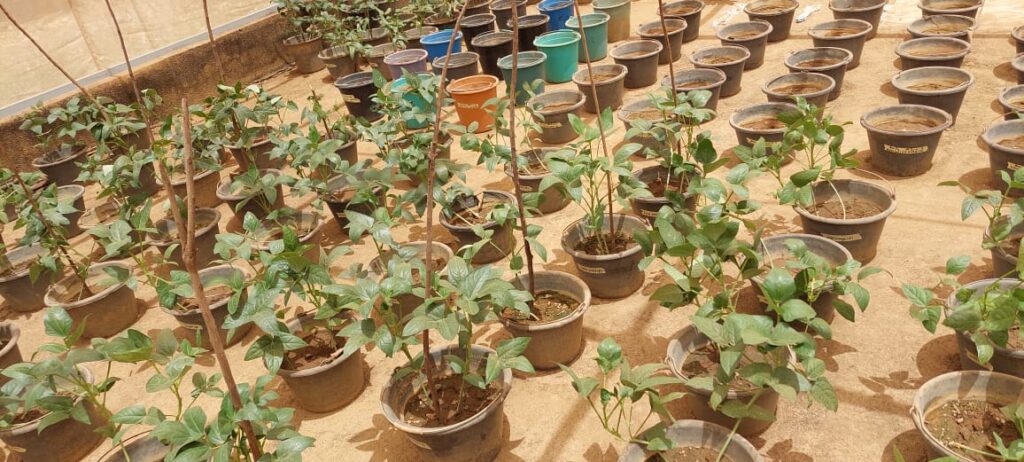

A turning point for Burkina Faso’s agriculture
After more than a decade of research, experimentation and development, the Bt cowpea project is set to transform the agricultural landscape of Burkina Faso. By offering an effective and sustainable solution against Maruca vitrata, this innovation opens up the prospect of a brighter future for Burkina Faso’s farmers. In addition, this transgenic variety could strengthen the resilience of national food systems and help reduce dependence on food imports.
If pod-borer-resistant cowpea gets final approval from the relevant authorities, it will be a real growth lever for the country’s agriculture, helping to improve the living conditions of thousands of producers while meeting the challenges of sustainability and food security. As Blaise Zoundi, an initially skeptical but now convinced grower, put it: « If these seeds can really protect our crops and reduce costs, I’m ready to give them a try. »
The project is coordinated by Dr Benoît Joseph Batieno and his team of researchers, which includes several biotechnology experts. Their work represents a model of collaboration between scientific research, technological innovation and agricultural development, with the ultimate aim of making this cowpea variety accessible and beneficial to all Burkinabe producers.
Carine Pierrette Zongo
Derniers articles par: Carine Pierrette Zongo (voir tous)
- Burkina Faso : le gouvernement adopte un avant-projet de loi portant révision de la Constitution - mercredi le 2 octobre 2024
- Burkina Faso : Bt cowpea to be popularized soon after more than a decade of experimentation - mercredi le 2 octobre 2024
- Burkina : les deux premières semaines d’octobre 2024 pourraient être particulièrement pluvieuses, selon l’ANAM - mercredi le 2 octobre 2024

